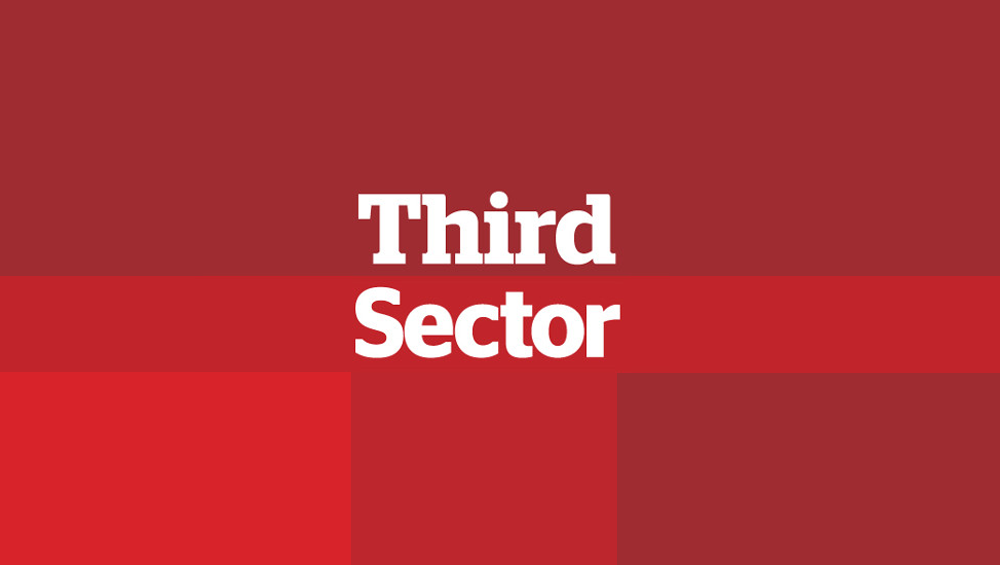This article appeared in Third Sector magazine on 30 December 2015.
The golden years are long gone and charities face a stark future, says our columnist Craig Dearden-Phillips
Winter is coming. Donation levels are flat. Public trust is fraying. Contract income is shrinking. Even the National Lottery is no longer safe. The third sector faces a difficult rest-of-decade.
To make matters worse, local government spending will shrink faster than at any time since 1945, with results unknown. These are dark days. This time round, there is no talk of a big society to sweeten the pain. Nor, thanks to Kids Company, are charity leaders being garlanded as the saviours of society. We are out in the cold. No cheque in the post.
In the face of all this, the sector itself seems to have lost its voice. A generation of senior leaders ruminate on what all this really means while knowing that, for them, it will soon be over. I think the truth is simple: the music really is stopping. Some 20 years on from a lottery-fuelled renaissance, the sector is now looking at a once-in-a-lifetime set of financial challenges. These will rapidly consume many of its weaker organisations. They will even take out some of its bigger players. Faced with this, organisations have a choice – adapt or die. It’s turnaround time.
Humour me for a moment and imagine this. Your columnist has, by a special act of parliament, been made charity commissioner with special powers to intervene. On my first day I mandate that all charities, in January 2016, call an emergency AGM to discuss and vote on a simple motion: “Shall we adapt this charity to the future or should we let it die?”
And here, comrades, is a helpful checklist for your emergency “adapt or die” conversation. It’s dead simple: if you can answer “yes” to three or more of the following questions, you should definitely resolve to adapt. However, should you answer “no” to more than two, you should immediately pass a motion to wind up and pass any remaining assets to another, similarly constituted organisation. So here we go:
1. Are you prepared to be taken over if it helps the cause you serve?
Yes – taken over. Not just merged, or partnered, or anything soft and fluffy. That’s easy, or should be. No, I mean taken over. Absorbed. The best of you, I suggest, won’t give a monkey’s if your brass nameplate disappears or if you are no longer chief executive or chair. You will happily find the right long-term arrangement for the greater good of your beneficiaries. But should you rail against such change, hanging on to independence by your fingernails, then you’re simply not ready to adapt to the world we are moving into. You might do better to quit now, before it’s too late.
2. Are you prepared to hold on only to your organisation’s brightest and best and let large numbers of your less capable people go to find new careers?
Let’s get real-world here. Most businesses are cyclical. They have to go through big retrenchments once in a while to balance the books and get the organisation back to its fighting best. As a caring sector, we try too hard, in the bad times, not to lose people. That’s understandable, given who we are.
But we have to recognise that, if the third sector is going to perform well, we can’t blow the reserves on holding on to staff.
Instead, we need to let a load of people go – and do this in the kindest possible fashion. Probably 20 per cent of the workforce. And not in expensive, disruptive dribs and drabs. Now. Not only this, but we need to convince the brightest and the best to stay in what will have to be leaner, less bureaucratic organisations.
3. Are you willing to specialise and jettison the things you do that are of the lowest value?
As a charity chief executive for 10 years, I knew, deep down, which things we did made the most difference and which were more marginal. But I didn’t cull enough low-value activity. Every charity has a form of this going on. It is now time to be honest and ask whether you can afford to continue the lower-impact work or should instead push all of that resource into the stuff you do best. It’s well understood that 80 per cent of the outcomes come from 20 per cent of what a charity does. During the years of sunshine, we could get away with the extra stuff and still make a good enough difference. Now the time has come for hard choices to be made.
4. Are you prepared to become far more commercial in the way you deliver your mission?
This means approaching your social purpose in a way that a business would approach the task of making money – with the same rock-hard resolve. To do the most good in your sector, you have to understand your sector much better than the competition. You need to be prepared to grow if this is going to benefit clients. You also need to be prepared to collaborate, sometimes with arch-rivals, on the breakthrough work that you can’t afford to do on your own. And you need, unflinchingly, to take others’ current services off them if you believe you can do a better job. Finally, you need to be happy to take a few risks by using your remaining reserves on new things, if the potential rewards for your beneficiaries are great. By contrast, if you only want to spend grants, salt away reserves for gap-plugging and take few risks, you might do better to call it a day.
5. Are you up for this?
Yes, you. To face the future means you, as a trustee, chief executive or senior manager, need to be game for the fight ahead. If you are tired, unconfident or angry, you’re better standing aside or going on a demo with your placard. Proper leaders suck this up. It’s reality. Deal with it. There is, thankfully, a generation of “millennials” coming through who have a different set of expectations of the world. They’ve had no long, honeyed decades to dull their senses. Many are now starting organisations, trying new things and coming up with novel approaches to old problems. They have no expectations of grants or secure jobs. Investment is their language, not donations. The venture they set up is as likely to be a business as a charity. Austerity is normal for them. Governance, in our sense of the word, is a downer. To be useful to the world, you need to match the millennials’ zeal and energy – or make way for them.
Leaner and keener
Of course, I would be pleasantly surprised if more than a handful of boards respond to my imaginary edict. And this is part of the problem. Our unwillingness to embrace the big, existential question is perhaps the largest failing of our sector. We just assume that existing is good in itself. So we waste valuable time and money bumbling on, rather than stopping if we’re not actually effective.
In good, and even not-so-good, times we get away with this. But as darkness closes in on our long day of good fortune, we won’t. We will get found out. There will be some almighty messes as charities duck and weave. The hidden blessing of all this is that there will be a cull of some of the sector’s turkeys and a coming-to-the-fore of those who are already adapting. And, I hope, this upheaval will produce not only a leaner, keener third sector, but also a fresh generation of leaders for whom all of this stuff is second nature, not a form of late-career purgatory. Winter is coming. Adapt or die!


